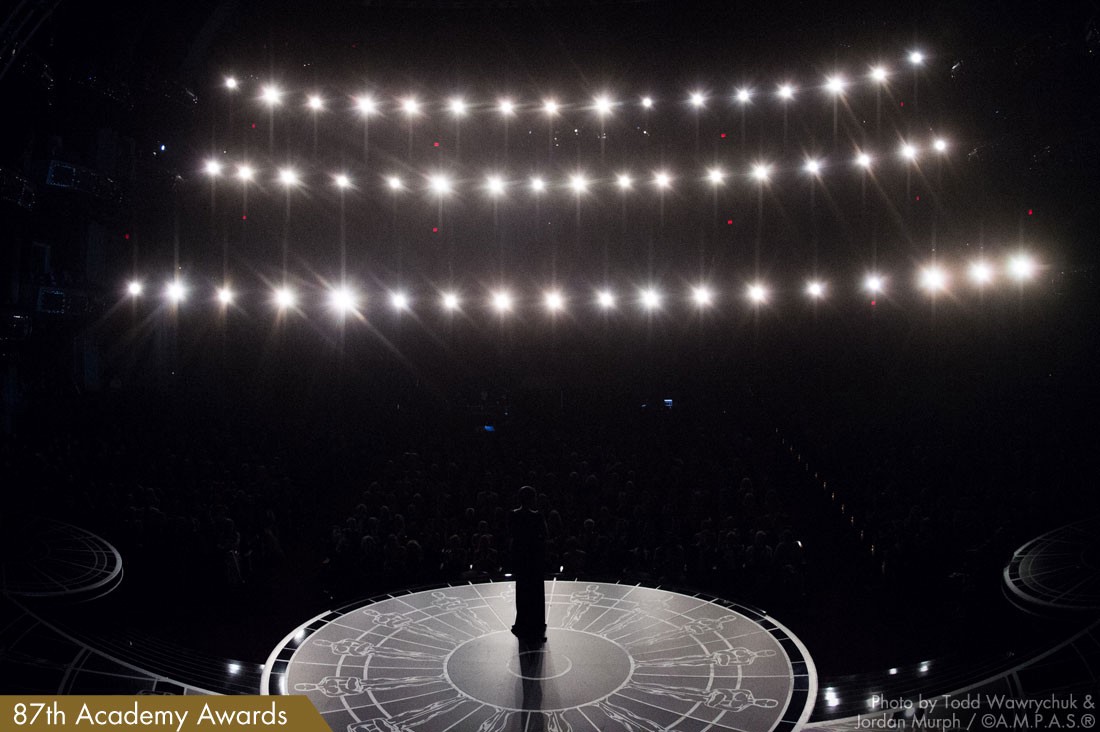It’s the biggest night of your career. Over 30 million people will watch you take the stage to accept an award. Filled with pride and gratitude for everything that it took you to get to this pinnacle of success, you lift your trophy and approach the microphone.
You now have 45 seconds to express what’s in your heart. Go.
During last night’s Oscars a few took the opportunity to use one of the world’s largest stages to make an overt political point — no doubt earning appreciation from their fans but derision from those who disagreed with their views.
Others took the more standard approach of trying to squeeze into those 45 seconds as many names who worked with them on their film or supported them in their career.
But what if these two approaches were merged. The list of individuals actually MADE an important political point.
In a country that prides itself on individual accomplishment, the reality is that these speeches can serve as reminder of exactly how many different influences it takes to make our life story possible.
When we thank people publicly we do two things. One is obvious. We tell the audience how much we appreciate certain individuals. But what is less obvious is that we can give others a road map for who and what is essential to success.
When we go beyond listing the who to say how a coach, teacher, friend, parent, or spouse influenced us, we underscore both their specific importance to us, but also provide general guidance to everyone listening.
Beyond individuals, we can include the places, values, works of inspiration, luck, non-profit or government organizations that were also critical to us along the way.
When we accept an award for our effort, we also accept a certain responsibility to acknowledge the collective efforts of all that helped us along the way.
In 1947, Olivia de Havilland set a modern-day record when she thanked 27 people, who helped her in route to her Oscar-winning performance in the ironically titled “To Each His Own.” The film itself is a staggering example of sacrifice and the invisible hands behind the scenes that can drive our happiness.
Stop reading and check out Kevin Durant’s MVP speech from 2014 below. The video is 26 minutes and 23 seconds long. You’ll be tempted to think that you don’t have time to watch it right now. Avoid the temptation. Watch it in its entirety.
I don’t want to give too much away, but in a setting to celebrate what is considered an individual award, Durant takes the time to personally single out each of his teammates, friends and family members among others. He tells brief stories about what each means to him and how they have made a difference in his life — a note in the locker here, a late night text there, a hug, a peanut butter and jelly sandwich. He is humble, humorous and breathtakingly honest. It is one of the best speeches of any kind, I’ve ever seen. And it is all off the cuff.
He says towards the end, “I don’t know about you, but when something good happens to you, I tend to look back at what brought me here.”
During the Oscars last night, winners did not have 26 minutes, instead they were given a mere 45 seconds to share a lesson of what “brought them” to the stage (although some were granted a reprieve from the Orchestra “playing them out” and allowed to go on a little longer).
Viola Davis paid homage to the ordinary lives that inspires an actor’s role
Casey Affleck reminded us that no actor can receive an award without a skilled writer (in his case fellow Oscar winner Kenneth Lonnergan) crafting the words and the character he will bring to life.
Benj Hasek, cowriter of “La La Land” thanked his mom for letting him quit youth soccer so he could pursue the arts by saying “This is dedicated to all the kids who sing in the rain and all the moms who let them.”
Last night 30 million people watched twenty give acceptance speeches.
But imagine if today 30 million people gave a thank you speech — each to an audience of twenty.
As last night’s bizarre yet gracious ending to the Academy Awards demonstrated, you don’t always have to win an award to take the stage and thank others.
Your world is your stage. You have 45 seconds, go.
If you’re interested in receiving our weekly email from Moving Up, delivering inspiration and perspective every Monday morning, please sign up here.
Originally published at medium.com


